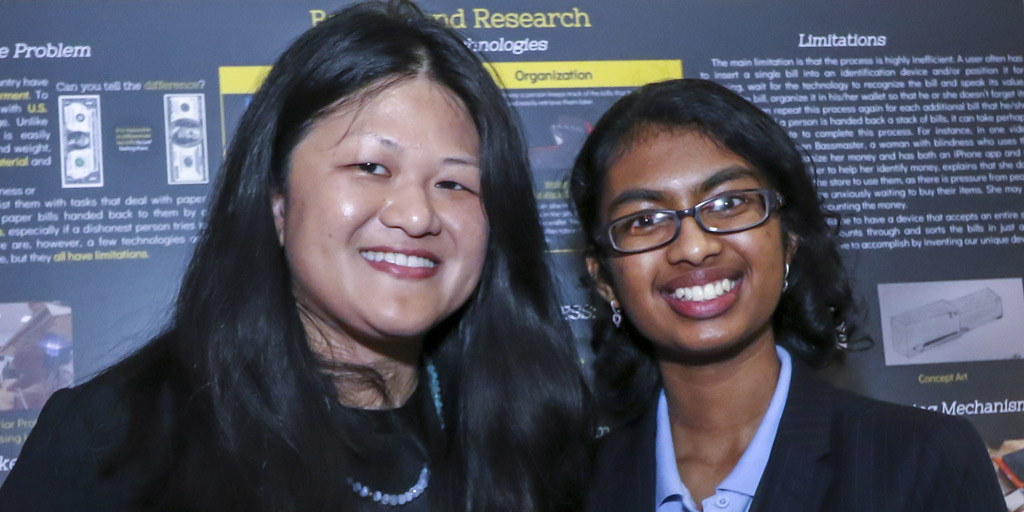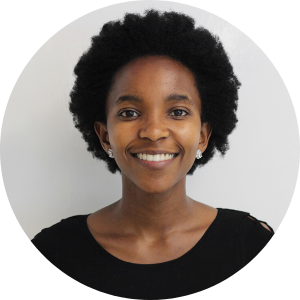
Innovation and entrepreneurship are fundamental drivers of economic growth. Studies show that diversity is key to sparking innovation and developing holistic solutions in early-stage ventures, however, women and people of color are still deeply underrepresented in every area of I&E. In particular, Black women and other women of color face unique obstacles while pursuing STEM innovation. In fields which historically have been male-dominated like clean energy, crucial first steps have been made to close the gender gap but there is much more to do to ensure equity.
According to recent studies by the American Society for Engineering Education and the National Science Foundation, only 20% of all engineering bachelor’s degrees are held by women; even with widespread efforts toward expanding equity in engineering education, less than 4% of those degrees are awarded to African American, Hispanic, and Native American women combined.
We recently celebrated some of the innovative breakthroughs and groundbreaking inventions developed by Black women engineers throughout history and shed light on the systemic, racist barriers that Black women, Indigenous women, and other women of color continue to overcome in accomplishing these innovative feats.
Here, we’re showcasing some of the VentureWell-supported female founders of color who are ascending to new heights in STEM, highlighting their real-world experiences about what it takes to be an inventor—and what motivates them to keep pushing forward.
Maria Artunduaga, MD, MPH, MTM
Founder and CEO of Respira Labs
E-Team Grantee 2018, OPENminds 2019
According to the Centers for Disease Control and Prevention, chronic obstructive pulmonary disease, or COPD, affects nearly 16 million Americans—and was the third leading cause of death in the United States in 2014. Artunduaga and the team at Respira Labs developed a device that continuously monitors patients’ lung function and collects lifestyle and other medical data to improve management of COPD.
Recently, the company has been awarded a $225,000 Phase I SBIR grant from the National Science Foundation, and Artunduaga has been recognized as Entrepreneur of the Year at the 2019 Women in IT Awards and named one of Silicon Valley Business Journal “40 under 40” honorees.
“I am willing to experiment: testing hypotheses, analyzing results, and iterating. People in the medical field are trained in pattern recognition and learn to handle uncertainty, assess risk, and make cost-benefit decisions. Those skills provide doctors with the potential to become great entrepreneurs.” — Maria Artunduaga, MD, MPH, MTM
Katya Cherukumilli
Founder and CEO of Global Water Labs
E-Team Grantee 2017, OPENminds 2018
Approximately 200 million people worldwide are at risk of developing irreversible diseases from drinking groundwater contaminated with high levels of naturally-occuring fluoride. Cherukumilli developed a scalable and affordable fluoride removing technology that helps reduce the risk of excessive fluoride in groundwater.
To date, Global Water Labs has held three pilots in India, Keyna, and Tanzania, and published two research studies proving the effectiveness of their products.
“Things never work out exactly as you planned. Learn to be flexible, accommodating, and go with the flow! Unexpected outcomes can lead to a lot of stress, but it is better to embrace uncertainty and view each new turn in the road as a creative challenge to overcome.”— Katya Cherukumilli
Katherine Jin
CTO & Co-Founder, Kinnos
E-Team Grantee 2015, OPENminds 2016, ASPIRE 2016
During the 2014 West African Ebola crisis, healthcare workers accounted for one out of 20 deaths—and less than 50% of surfaces in healthcare settings are thoroughly disinfected, creating 5-6 times the risk of contaminations and infection. To combat this, Jin and her two co-founders at Columbia University developed Highlight, an additive that dyes disinfectants blue, which makes it easier for healthcare workers to see coverage gaps. The additive fades from blue to clear once the surface has been properly disinfected, ensuring that healthcare workers can clean more comprehensively. The additive also increases disinfectant adherence to surfaces and significantly decreases the corrosiveness of bleach, protecting medical equipment and surfaces.
Kinnos participated in every stage of our E-Team Program, receiving $25k in grants along with venture development training training and coaching. VentureWell also participated in the team’s $1 million seed round in 2017. Since then, the startup has received significant support for their healthcare innovations; they recently closed a $6 million venture-backed investment round, forging ahead in their vision to protect health workers as they work to protect us all. Jin was profiled in The Story Exchange about young women becoming entrepreneurs in college.
“There aren’t a lot of women in tech, yet. Rubin was ostracized for her work but held on to her convictions. She was a pioneer for women in STEM. It’s because of women like her [that] I decided to major in biochemistry and computer science.” — Katherine Jin
Bonolo Mathekga
Co-Founder of drizzle
E-Team Grantee 2019, BME-IDEA International Student Grants Program Fall 2019, virtual OPENminds 2020
Tuberculosis (TB) is one of the top ten causes of death in the world. Mathekga and her co-founder at drizzle are addressing this global health crisis with a novel TB testing device, specifically designed for under-resourced areas, to enable earlier treatment intervention and reduce the risk of transmission by underdiagnosed cases. The team is deeply committed to environmentally responsible practices—they recycle the sputum cups used to collect testing samples, ensuring that the collection devices are sterilized and recoatied before reuse.
Alongside her team at John Hopkins University, Mathekga received an E-Team grant from VentureWell as part of our summer 2019 cohort. Since then, the team has competed in our first-ever virtual OPENminds Showcase earlier this year and the University of Arkansas’ 2020 Heartland Challenge.
“As a young innovator from South Africa—a TB-stricken country—I felt that it was important to create solutions that address this global health problem. I learned the importance of pivoting. [I&E] is a difficult process because you become attached to your ideas or products. However, pivoting can be a necessary step in taking your venture to the next level.”— Bonolo Mathekga
Maricely Ramirez Hernandez
Founder of Mirato Labs (formerly Burnflex)
E-Team Grantee 2018, 2018 GIST Startup Training Australia, OPENminds 2019
Wound treatments for burn victims often require frequent dressing changes, which leaves the patient vulnerable to pain and infection from outside sources. Ramirez Hernandez and her team at Mirato Labs are creating a novel burn wound dressing that uses a portable and easy-to-apply film-forming foam, enabling greater patient mobility, protection against outside elements, and accelerated healing.
Ramirez Hernandez and her team were 2018 E-Team grantees, participating in our Propel Workshop and GIST startup training that same year. The team also took home the first place prize at our 2019 OPENminds Showcase.
“As an engineer, I used to think about how cool it would be to create something, but I didn’t always think about the bigger picture, or who would use it. My team members with business backgrounds have shown me the importance of understanding the user’s problem when inventing a product. I’ve changed how I think about inventing by first listening to the customer’s pain points and challenges.” —Maricely Ramirez Hernandez
To be successful agents of change we must work to remove the barriers that historically marginalized groups have faced in STEM and in innovation and entrepreneurship. Black, Latinx, and Indigenous innovators are key to taking on the problems of our collective future. We bear a responsibility to expanding equity in our work and nurture an inclusive STEM innovation and entrepreneurship community. Read more about our commitment to equity and inclusion in I&E.
Read our other features on women-led ventures, Black female engineers, and how tech transfer offices can help close the gender gap in entrepreneurship. We have also assembled resources, tools, and opportunities to help you advance equity at your institution and in your program.
The E-Team program supports dedicated science- and engineering-based student teams from across the nation in bringing their high-impact innovation out of the lab and into the market.